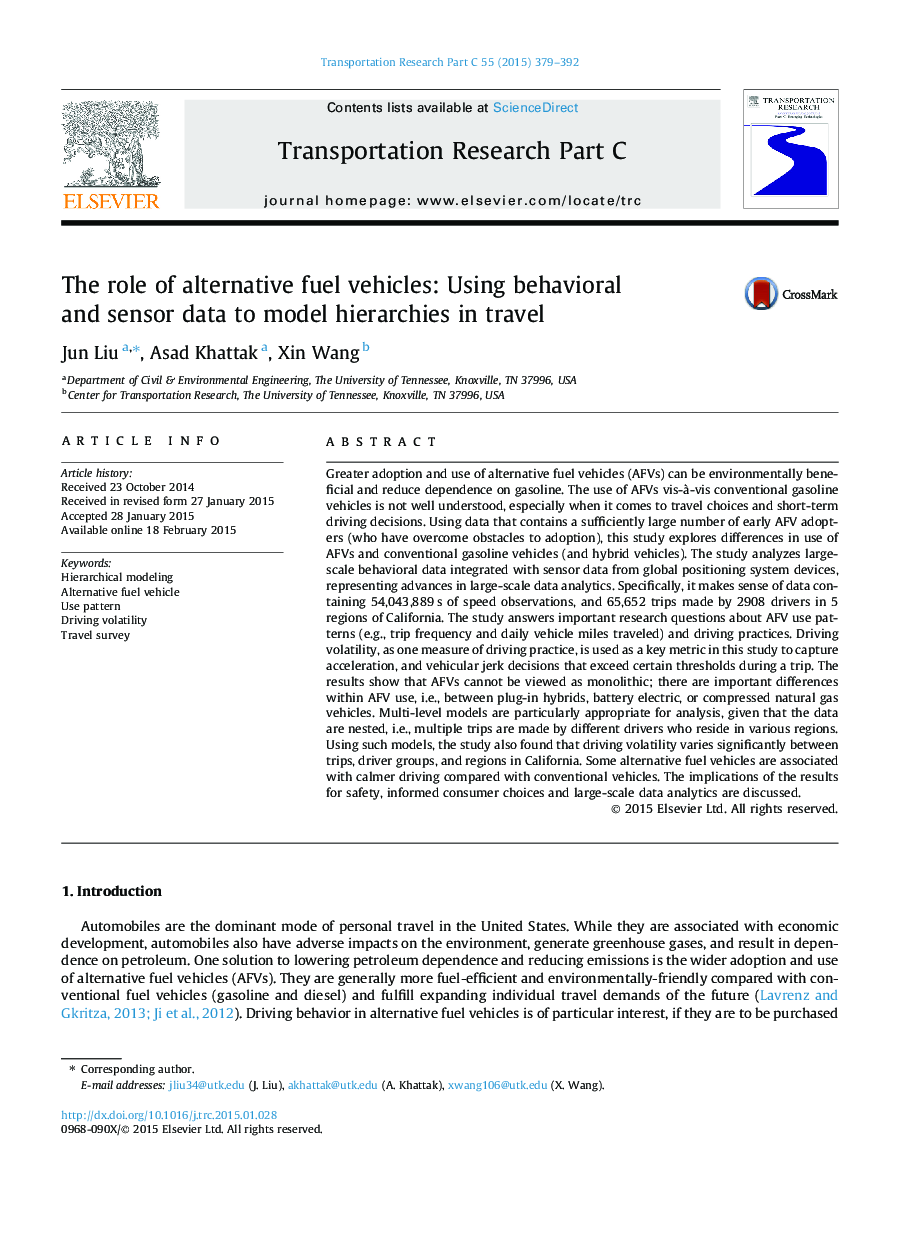| Article ID | Journal | Published Year | Pages | File Type |
|---|---|---|---|---|
| 6936848 | Transportation Research Part C: Emerging Technologies | 2015 | 14 Pages |
Abstract
Greater adoption and use of alternative fuel vehicles (AFVs) can be environmentally beneficial and reduce dependence on gasoline. The use of AFVs vis-Ã -vis conventional gasoline vehicles is not well understood, especially when it comes to travel choices and short-term driving decisions. Using data that contains a sufficiently large number of early AFV adopters (who have overcome obstacles to adoption), this study explores differences in use of AFVs and conventional gasoline vehicles (and hybrid vehicles). The study analyzes large-scale behavioral data integrated with sensor data from global positioning system devices, representing advances in large-scale data analytics. Specifically, it makes sense of data containing 54,043,889Â s of speed observations, and 65,652 trips made by 2908 drivers in 5 regions of California. The study answers important research questions about AFV use patterns (e.g., trip frequency and daily vehicle miles traveled) and driving practices. Driving volatility, as one measure of driving practice, is used as a key metric in this study to capture acceleration, and vehicular jerk decisions that exceed certain thresholds during a trip. The results show that AFVs cannot be viewed as monolithic; there are important differences within AFV use, i.e., between plug-in hybrids, battery electric, or compressed natural gas vehicles. Multi-level models are particularly appropriate for analysis, given that the data are nested, i.e., multiple trips are made by different drivers who reside in various regions. Using such models, the study also found that driving volatility varies significantly between trips, driver groups, and regions in California. Some alternative fuel vehicles are associated with calmer driving compared with conventional vehicles. The implications of the results for safety, informed consumer choices and large-scale data analytics are discussed.
Related Topics
Physical Sciences and Engineering
Computer Science
Computer Science Applications
Authors
Jun Liu, Asad Khattak, Xin Wang,
